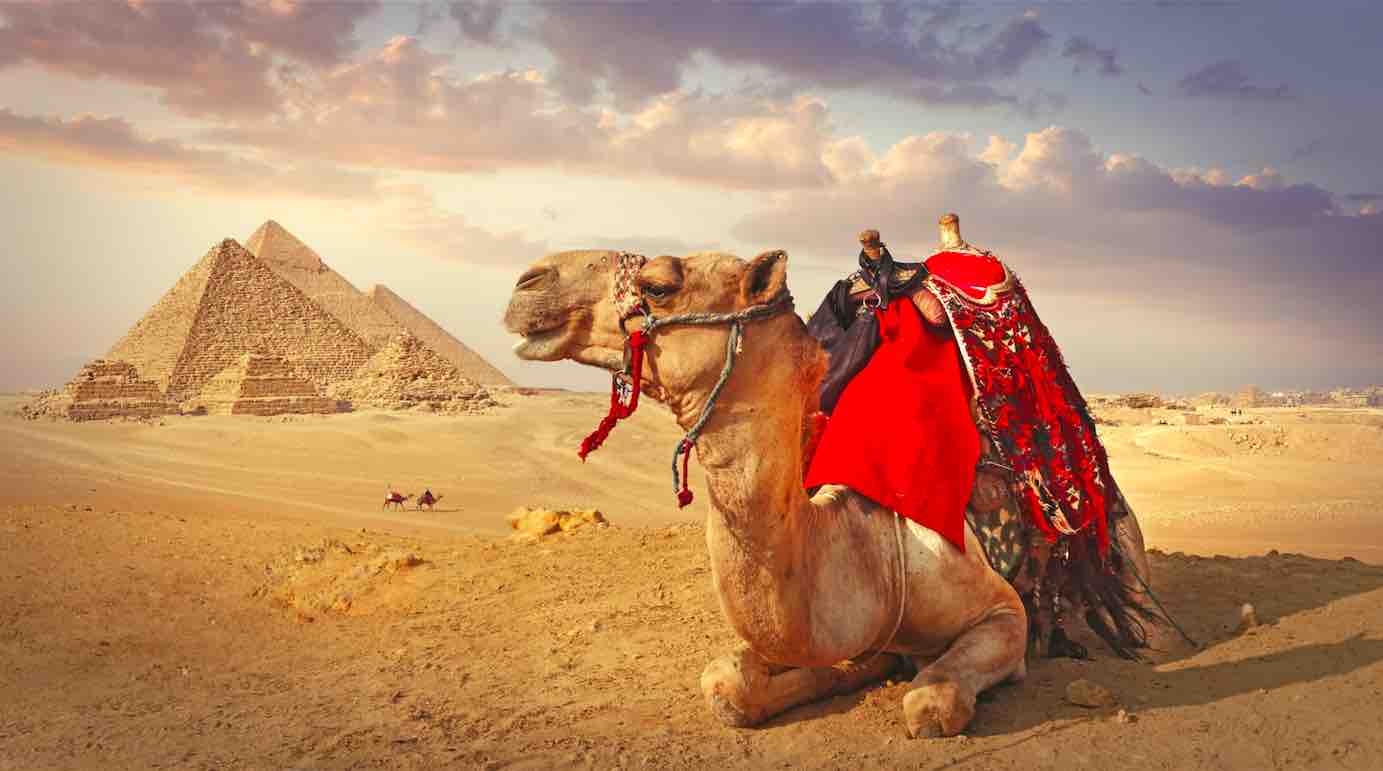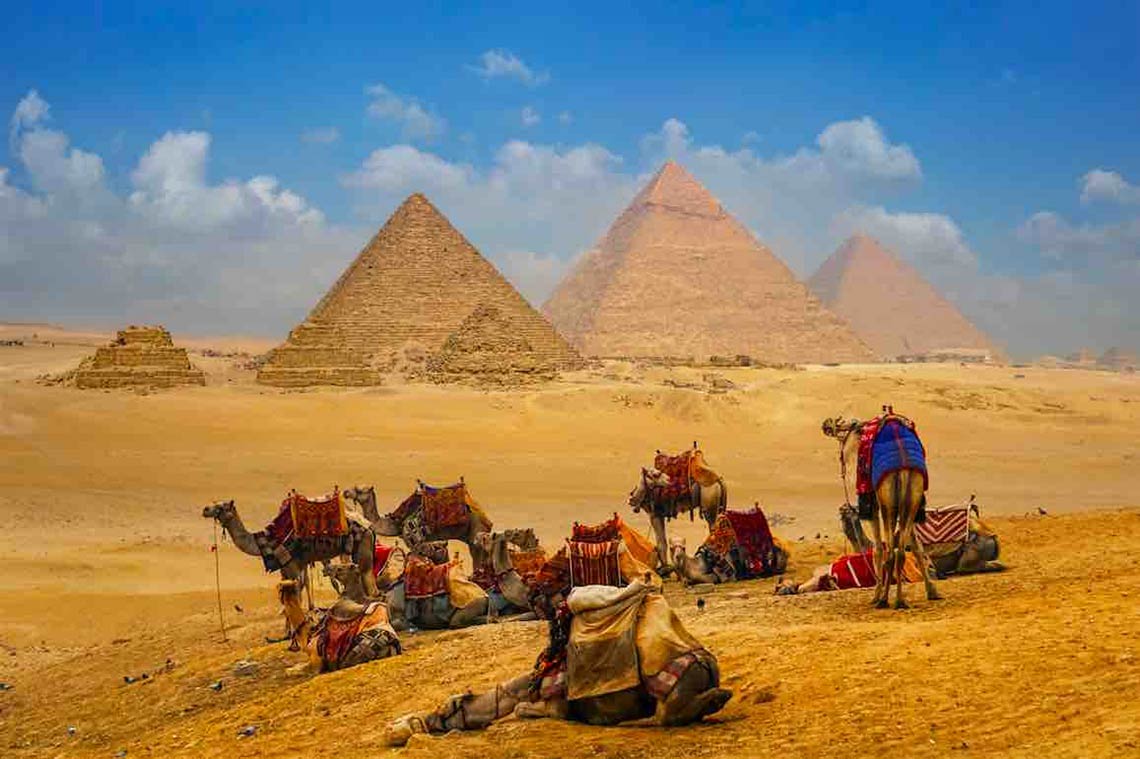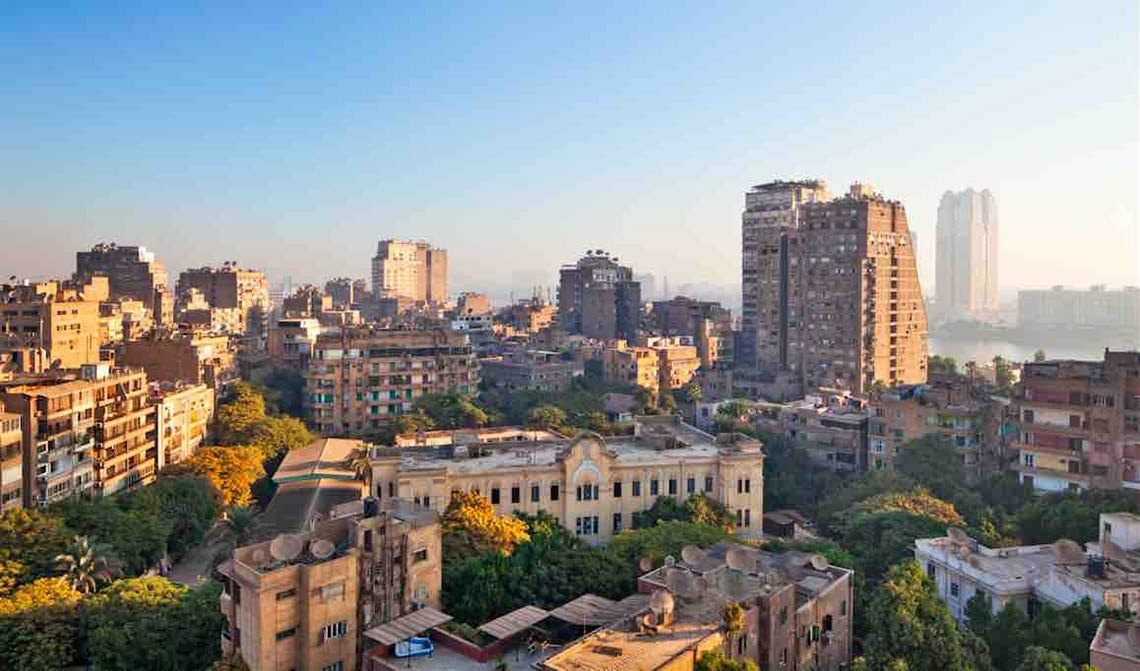Badania rynku w Egipcie

Why is market research in Egypt becoming an essential tool for businesses looking to navigate this market? Egypt, with its strategic location bridging Africa and the Middle East, presents a unique and vibrant market environment – and understanding the intricacies of this market through effective market research is a strategic necessity for any business aiming to succeed in this rapidly evolving business landscape.
The land of the Pharaohs has experienced some changes over the years.
However, its economic activities still revolve around the same sectors. With a huge part of the population being youthful, there is both potential and a demand for more growth.
Understanding Market Research in Egypt
Egypt’s market is distinguished by its youthful demographic, with a large portion of the population under 30. This young demographic is tech-savvy and increasingly urban and is driving changes in consumer behavior and market trends.
Furthermore, the Egyptian market is influenced by a blend of traditional values and modern influences. Traditional markets, or souks, coexist with modern shopping malls, and local brands compete alongside international names. Therefore, effective market research in Egypt must capture these diverse market aspects to offer a holistic view of the opportunities and challenges within the market.
Benefits of Market Research in Egypt
Engaging in market research in Egypt offers significant advantages for businesses aiming to understand and succeed in this distinct market. The benefits of conducting thorough research in Egypt are numerous, contributing to more informed decision-making and strategic planning. Here’s a look at the key benefits:
• Identifying Market Opportunities: Egypt’s evolving market landscape presents numerous opportunities, and market research helps identify them, whether in emerging consumer trends, unmet needs, or new market segments.
• Indywidualnie dostosowane strategie marketingowe: Insights from market research guide the development of marketing strategies that resonate with the Egyptian audience, ensuring cultural relevance and effectiveness.
• Rozwój produktów i innowacje: Market research informs the product development process, ensuring that new products or services are well-suited to the preferences and needs of the Egyptian market.
• Regulatory Compliance and Understanding: Navigating the regulatory environment in Egypt can be complex. Consequently, market research aids in understanding these regulations, ensuring compliance and operational effectiveness.
• Understanding Diverse Consumer Base: Egypt’s population is diverse, with varying lifestyles, income levels, and consumer behaviors – and market research helps in understanding these diverse consumer segments, crucial for tailoring products and services.
• Competitive Landscape: The Egyptian market is becoming increasingly competitive with the entry of new local and international players. Research helps in understanding the competitive environment, allowing businesses to strategize effectively.
• Navigating Economic Fluctuations: Egypt’s economy has experienced various fluctuations and market research aids in understanding these economic patterns and their impact on consumer spending and business opportunities.
• Tailoring Marketing Strategies: The insights gained from market research are invaluable in developing effective marketing strategies that resonate with the Egyptian audience, ensuring better engagement and ROI.
What Are Egypt’s Strategic Industries?
Despite being mostly a desert country, Egypt has several industries driving its economy. Here are the top three.
1. Oil and Gas
As a significant player in global oil production and estimated to have almost 4 billion barrels of oil in reserves, Egypt heavily relies on this industry. The country’s twelve oil refineries are intended to make it self-sufficient as far as oil processing is concerned.
Egypt is also a producer of natural gas and exports some of it to the Middle East through the 1,200 km Arab Gas Pipeline.
2. Turystyka
Tourism is a big part of Egypt’s economy, and the Pyramids of Giza are the main attractions. Other tourist attractions in Egypt include the Egyptian Museum, which houses at least 120,000 Egyptian antiquities; Abu Simbel, an archaeological site with two rock-cut temples; and cruising the Nile.
3. Rolnictwo
The vast desert of Egypt gets some relief from the Nile River. The country’s agricultural sector thrives on the fertile grounds of the Nile valley and delta.
With millions of acres of productive land, Egypt produces rice, wheat, cotton, sugarcane, tobacco, and onions. However, as impressive as the industry is, it doesn’t satisfy the local demand.
Main Players in Egypt
Identifying the main players in Egypt’s diverse market sectors is crucial for businesses conducting market research in Egypt. These companies significantly influence various industry sectors in Egypt. Here’s an overview of the main players in key sectors:
• Vodafone Egypt: A leading mobile operator in Egypt, known for its extensive network and range of services.
• National Bank of Egypt: The country’s largest and oldest bank, playing a pivotal role in Egypt’s financial landscape.
• Commercial International Bank (CIB): A major private-sector bank, known for its innovative banking services.
• Talaat Moustafa Group: A leading real estate developer, involved in large-scale residential and commercial projects.
• Orascom Construction: A global engineering and construction company with significant operations in Egypt.
• Egyptian Starch and Glucose Company: Specializing in starch and glucose production, reflecting the importance of agriculture in Egypt’s economy.
• El Sewedy Electric: A key player in manufacturing electrical equipment and providing integrated energy solutions.
• El Araby Group: A leading manufacturer of electronics and home appliances, with a strong presence in the Egyptian market.
• Majid Al Futtaim: Operates key shopping malls and hypermarkets, shaping the retail landscape in Egypt.
Main Tourist Attractions in Egypt
Tourism is a vital sector in Egypt’s economy and understanding the main tourist attractions is essential for businesses conducting market research in Egypt, especially those in the travel, hospitality, and service industries. Here’s an overview of some of the key tourist attractions:
• The Great Pyramids of Giza and the Sphinx: Iconic ancient wonders that attract millions of tourists worldwide.
• The Egyptian Museum: Home to an extensive collection of ancient Egyptian artifacts, including Tutankhamun’s treasures.
• Valley of the Kings: Famous for its tombs and burial chambers of ancient Egyptian pharaohs.
• Karnak Temple: One of the largest religious buildings in the world, known for its stunning architecture.
• Abu Simbel Temples: Massive rock temples originally carved during the reign of Pharaoh Ramses II.
• The Aswan High Dam and Lake Nasser: Modern engineering marvels with significant historical importance.
• The Bibliotheca Alexandrina: A modern library and cultural center, paying homage to the ancient Library of Alexandria.
• Sharm El Sheikh and Hurghada: Popular beach resorts are known for their beautiful beaches, coral reefs, and water sports like diving and snorkeling.
Current Trends in Egypt
Understanding business trends in Egypt helps companies adapt their strategies to the unique characteristics of the Egyptian market. Here are some of the key current trends in Egypt:
• Transformacja cyfrowa: Egypt is experiencing a significant shift towards digitalization, with increased online activity, e-commerce growth, and digital payment adoption. This trend affects consumer shopping habits, media consumption, and business operations.
• Retail Sector Evolution: The retail landscape is evolving with the integration of online and offline channels, leading to the growth of omnichannel retailing and enhanced customer experiences.
• Youth Influence on Market Trends: Egypt has a large youth population, and trends among young Egyptians, particularly in technology use, fashion, and entertainment, are significantly influencing market dynamics.
• Increasing Focus on Local Manufacturing: Government initiatives and policies are driving a trend toward boosting local manufacturing across various industries.
Business Opportunities in Egypt
Egypt offers unique opportunities for business investors, although these might not be the same in traditional fields.
1. Tours and Travels
As a major contributor to the country’s GDP, any tourism-related business is sure to have good returns. One very viable investment option is in the travel and tours sub-sector.
A smart way to win the game would be to advertise in countries like Russia, Saudi Arabia, and Europe, where most tourists come from. Businesses can also partner with international tours and travel companies and “exchange” tourists to guarantee business flow.
2. Agriculture
There is a huge demand for food in the local market. Grains are a staple among Egyptian households, so investors who can produce them with minimum water resources can thrive.
Not only is there a ready market for the produce, but government support is sure since such a business would help attain food security.
3. Information Communication Technology
Over 50% of Egypt’s population is under 25. This population group is tech-savvy and a potential supply of talent for tech-related businesses. Egypt is also a leader in outsourcing services in the region.
The government is working to improve the country’s ICT infrastructure, which will create a favorable environment for IT-related businesses to grow.
4. Financial Services
Financial services are necessary to grow the economy. From banking and insurance to leasing, providing funding and financial advice encourages innovation.
Financial assets also need to be priced, and the overall economic development must be determined. Since capital markets accurately reflect an economy’s performance, providing these services makes business sense.
Challenges Facing the Economy of Egypt
The biggest challenge that Egypt’s economy faces is desertification. Over ten thousand hectares of agricultural land is estimated to be lost every year due to desertification. This leads to an increase in food imports, negatively affecting the country’s trade balance.
Corruption has also affected businesses in Egypt. Favoritism pushes businesses to engage in corruption so as to survive. Middlemen provide “connections” to help navigate the complex government bureaucracy, which makes it challenging for new or small businesses to succeed. Some other challenges include:
• Zmienność gospodarcza: Egypt’s economy can be subject to fluctuations, which may affect consumer spending habits and market dynamics.
• Political Instability: Periods of political instability can impact business operations and the investment climate.
• Infrastructure Challenges: Some areas may have infrastructure limitations, affecting logistics and distribution.
• Obawy dotyczące bezpieczeństwa: Security issues can arise, particularly in certain regions, which may impact business operations.
• Access to Data: Access to reliable and up-to-date data can be a challenge, requiring thorough research and local partnerships.
• Talent and Skills: Finding skilled local talent for market research and business operations can be a challenge in certain industries.
Egypt’s Business Location Hubs

Egypt’s businesses thrive in the tourism and agriculture sectors. The best areas for tourism-related businesses are Cairo, Giza, and Luxor. Sugarcane production is also a business option in Luxor.
Suez’s refineries are good for oil-related businesses. Tanta and El-Mahalla El-Kubra are the best locations for agriculture and textile manufacturing businesses.
About Market Research in Egypt
Businesses must unlock key insights about a market before making an investment. At SIS International Research, we help businesses conduct market research through methods such as surveys, focus groups, online communities, and voice-of-the-customer research.
We aim to empower businesses to start well and have a growth strategy in place.



